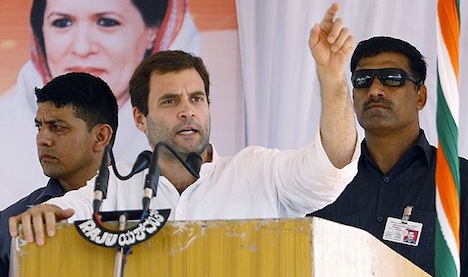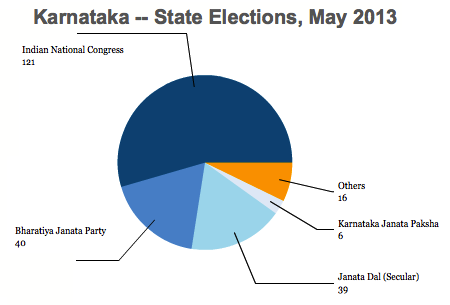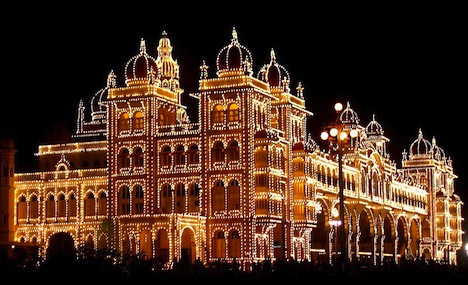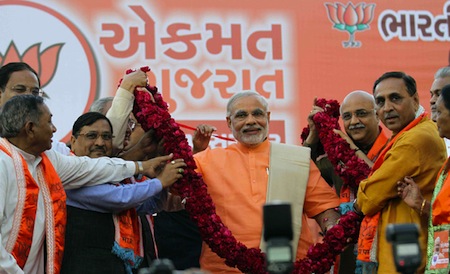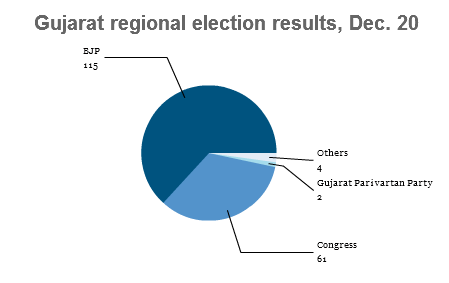Votes from Sunday’s elections in the Indian state of Karnataka were counted today and, as polls suggested, the troubled government of the conservative, Hindu nationalist Bharatiya Janata Party (the BJP, or भारतीय जनता पार्टी) has overwhelmingly lost.![]()
![]()
The Indian National Congress (Congress, or भारतीय राष्ट्रीय कांग्रेस) has won 121 seats — an absolute majority — among the 223 seats up for election in the Karnataka legislative assembly, the Vidhan Sabha (विधान सभा). In contrast, the BJP lost 72 seats and now holds just 40.
So what do the results mean for Indian national politics? As with most special elections and regional and local elections, it’s hard to extrapolate trends from a local election for national significance. But given that India’s national leaders, including very likely its next prime minister, all campaigned in Karnataka, there are some points worth noting, with India’s own national elections set to take place before May 2014.
First, critics of Gujarat chief minister Narendra Modi, both inside and outside the BJP, will have an argument that Modi’s brand of campaign magic isn’t transferable outside his own state. Modi campaigned vigorously in the final days of the campaign, and he’s widely seen as the frontrunner to lead the BJP in next year’s general election and even a slight frontrunner to become India’s next prime minister. But the BJP in Karnataka was always facing an uphill battle, so Modi’s failure to change the dynamic is no more or less indicative of his national appeal than Rahul Gandhi’s inability to help Congress win last year’s elections in India’s most populous state, Uttar Pradesh.
Second, the Karnataka election was the first state election since Rahul (pictured above) became the vice president of Congress, so a loss or a closer-than-expected race might have demonstrated that Congress’s brand — and the Gandhi brand — is wearing thin nationally. That didn’t happen, so from Rahul’s perspective, the election is a success.
Perhaps the most important lesson is the anti-incumbent mood, and it wouldn’t be surprising if many of Karnataka’s voters, who just ejected a BJP government this week, will be equally keen to eject the national Congress-led government next year — a government that’s been in office nearly a decade and has received much criticism, even abroad, for a drop in India’s economic growth and its relative lack of energy in pursuing economic reforms.
Back in Karnataka, however, attention will now turn to the next chief minister of a state that remains a technology-fueled economic star within India. Continue reading As expected, BJP loses Karnataka state elections to surging Congress
